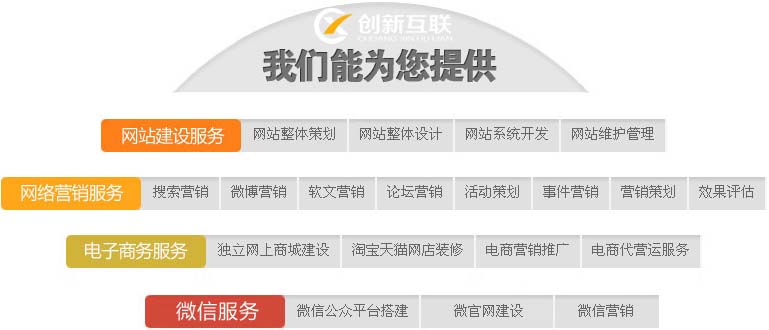C#數(shù)組和串操作有哪些
這篇文章主要介紹“C#數(shù)組和串操作有哪些”,在日常操作中,相信很多人在C#數(shù)組和串操作有哪些問(wèn)題上存在疑惑,小編查閱了各式資料,整理出簡(jiǎn)單好用的操作方法,希望對(duì)大家解答”C#數(shù)組和串操作有哪些”的疑惑有所幫助!接下來(lái),請(qǐng)跟著小編一起來(lái)學(xué)習(xí)吧!

站在用戶(hù)的角度思考問(wèn)題,與客戶(hù)深入溝通,找到崆峒網(wǎng)站設(shè)計(jì)與崆峒網(wǎng)站推廣的解決方案,憑借多年的經(jīng)驗(yàn),讓設(shè)計(jì)與互聯(lián)網(wǎng)技術(shù)結(jié)合,創(chuàng)造個(gè)性化、用戶(hù)體驗(yàn)好的作品,建站類(lèi)型包括:成都網(wǎng)站設(shè)計(jì)、成都網(wǎng)站制作、外貿(mào)網(wǎng)站建設(shè)、企業(yè)官網(wǎng)、英文網(wǎng)站、手機(jī)端網(wǎng)站、網(wǎng)站推廣、主機(jī)域名、網(wǎng)頁(yè)空間、企業(yè)郵箱。業(yè)務(wù)覆蓋崆峒地區(qū)。
關(guān)于C#數(shù)組和C#串操作:
1)串是由連續(xù)存儲(chǔ)的字符組成
2)C#中的串具有恒定不變的特性,即 一旦被創(chuàng)建,就不能改變長(zhǎng)度或者改變其中任何的字符。
3)串的連接、插入和刪除等操作都是生成了新串而沒(méi)有改變?cè)?br/>4)繼承自 System.object。所以是引用類(lèi)型(int,bool,char 等都是struct 不是class,是值類(lèi)型)。
5)System.String 是密封類(lèi),所以不能被繼承。
6)雖然System.String 是引用類(lèi)型,但C#中將String 看作是基元類(lèi)型,所以不用 new操作符創(chuàng)建實(shí)例,而是使用字符串駐留的機(jī)制。
7)System.String 繼承自 IComparable, ICloneable, IConvertible, IComparable
8)C#提供了StringBuilder類(lèi)型來(lái)支持高效地動(dòng)態(tài)創(chuàng)建字符串。
下面是自定義一個(gè)string類(lèi),類(lèi)中包含一個(gè)字段,用以存放字符序列的C#數(shù)組,還有一些常用的C#串操作。
public class StringDS { private char[] data;//char數(shù)組 //索引器 public char this[int index] { get { return data[index]; } set { data[index] = value; } } //構(gòu)造函數(shù) public StringDS(char[] arr) { data = new char[arr.Length]; for (int i = 0; i < arr.Length; i++) { data[i] = arr[i]; } } //構(gòu)造函數(shù) public StringDS(int len) { char[] arr = new char[len]; data = arr; } //求串長(zhǎng) public int GetLength() { return data.Length; } //串比較 public int Compare(StringDS s) { int len=((this.GetLength()<=s.GetLength())? this.GetLength():s.GetLength()); int i = 0; for (i = 0; i < len; ++i) { if (this[i] != s[i]) { break; } } if (i <= len) { if (this[i] < s[i]) { return -1; } else if (this[i] > s[i]) { return 1; } } else if (this.GetLength() == s.GetLength()) { return 0; } else if (this.GetLength() < s.GetLength()) { return -1; } return 1; } //求子串 public StringDS SubString(int index, int len) { if ((index<0) || (index>this.GetLength()-1) || (len<0) || (len>this.GetLength()-index)) { Console.WriteLine("Position or Length is error!"); return null; } StringDS s = new StringDS(len); for (int i = 0; i < len; ++i) { s[i] = this[i + index-1]; } return s; } //串連接 public StringDS Concat(StringDS s) { StringDS s1 = new StringDS(this.GetLength() +s.GetLength()); for (int i = 0; i < this.GetLength(); ++i) { s1.data[i] = this[i]; } for (int j = 0; j < s.GetLength(); ++j) { s1.data[this.GetLength() + j] = s[j]; } return s1; } //串插入 public StringDS Insert(int index, StringDS s) { int len = s.GetLength(); int lenlen2 = len + this.GetLength(); StringDS s1 = new StringDS(len2); if (index < 0 || index > this.GetLength() - 1) { Console.WriteLine("Position is error!"); return null; } for (int i = 0; i < index; ++i) { s1[i] = this[i]; } for(int i = index; i < index + len ; ++i) { s1[i] = s[i - index]; } for (int i = index + len; i < len2; ++i) { s1[i] = this[i - len]; } return s1; } //串刪除 public StringDS Delete(int index, int len) { if ((index < 0) || (index > this.GetLength() - 1) || (len < 0) || (len > this.GetLength() - index)) { Console.WriteLine("Position or Length is error!"); return null; } StringDS s = new StringDS(this.GetLength() - len); for (int i = 0; i < index; ++i) { s[i] = this[i]; } for (int i = index + len; i < this.GetLength(); ++i) { s[i] = this[i]; } return s; } //串定位 public int Index(StringDS s) { if (this.GetLength() < s.GetLength()) { Console.WriteLine("There is not string s!"); return -1; } int i = 0; int len = this.GetLength() - s.GetLength(); while (i < len) { if (this.Compare(s) == 0) { break; } } if (i <= len) { return i; } return -1; } }到此,關(guān)于“C#數(shù)組和串操作有哪些”的學(xué)習(xí)就結(jié)束了,希望能夠解決大家的疑惑。理論與實(shí)踐的搭配能更好的幫助大家學(xué)習(xí),快去試試吧!若想繼續(xù)學(xué)習(xí)更多相關(guān)知識(shí),請(qǐng)繼續(xù)關(guān)注創(chuàng)新互聯(lián)網(wǎng)站,小編會(huì)繼續(xù)努力為大家?guī)?lái)更多實(shí)用的文章!
本文標(biāo)題:C#數(shù)組和串操作有哪些
瀏覽路徑:http://www.chinadenli.net/article22/jdhpjc.html
成都網(wǎng)站建設(shè)公司_創(chuàng)新互聯(lián),為您提供外貿(mào)建站、定制網(wǎng)站、標(biāo)簽優(yōu)化、網(wǎng)站維護(hù)、做網(wǎng)站、網(wǎng)站營(yíng)銷(xiāo)
聲明:本網(wǎng)站發(fā)布的內(nèi)容(圖片、視頻和文字)以用戶(hù)投稿、用戶(hù)轉(zhuǎn)載內(nèi)容為主,如果涉及侵權(quán)請(qǐng)盡快告知,我們將會(huì)在第一時(shí)間刪除。文章觀點(diǎn)不代表本網(wǎng)站立場(chǎng),如需處理請(qǐng)聯(lián)系客服。電話:028-86922220;郵箱:631063699@qq.com。內(nèi)容未經(jīng)允許不得轉(zhuǎn)載,或轉(zhuǎn)載時(shí)需注明來(lái)源: 創(chuàng)新互聯(lián)

- 做外貿(mào)建站好不好?這幾個(gè)誤區(qū)要注意了 2015-04-27
- 外貿(mào)建站系統(tǒng)如何選,要從不同角度去分析 2022-05-27
- 外貿(mào)建站沒(méi)有你想的那么簡(jiǎn)單 2015-04-16
- 外貿(mào)建站要關(guān)注的一些問(wèn)題 2023-03-05
- 成都外貿(mào)建站公司哪家好? 2015-03-21
- 外貿(mào)建站完成后如何繼續(xù)完善 2021-08-25
- 外貿(mào)建站推廣怎么做效果最好? 2016-03-23
- 外貿(mào)建站選美國(guó)空間還是香港空間好? 2022-10-10
- 外貿(mào)建站租用香港云服務(wù)器還是美國(guó)云服務(wù)器好? 2022-10-02
- 外貿(mào)網(wǎng)站建站費(fèi)用是由那些方面組成的?外貿(mào)建站報(bào)價(jià)多少靠譜? 2015-07-09
- 談?wù)勍赓Q(mào)建站為什么要選擇香港服務(wù)器? 2022-10-03
- 外貿(mào)建站中的哪些細(xì)節(jié)影響著網(wǎng)站流量? 2015-06-11